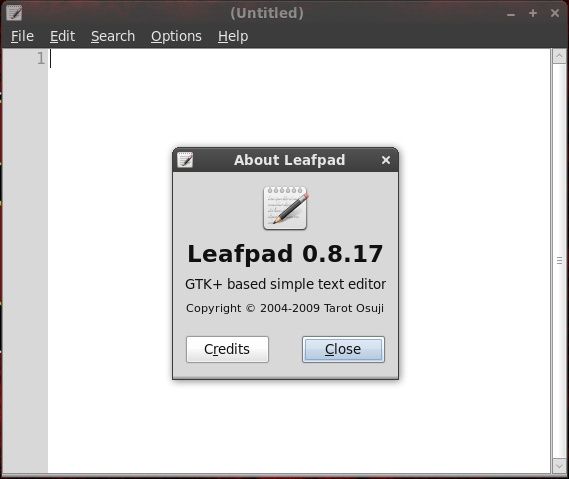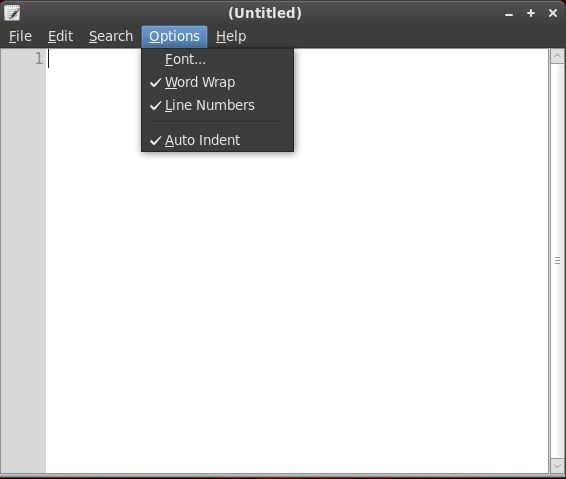I know that a handful of people value lightweight programs, especially after I read some comments on my previous articles. I must admit, it's a great thing when a program is light on resources and does the job right every time. In today's feature I've found another very lightweight program for your personal enjoyment called Leafpad. Leafpad will more than likely remind you of other programs, but we'll get into that in just a bit.
Why Care About Program Resource Usage?
Looking after how much resources a program uses is a great skill to have in order to maintain a cleanly running, stable system. The more resources it uses (compared to other programs that achieve the same thing), the more inefficient the program will run, causing your system to become laggy. Over time you might accumulate a number of resource-hogging applications, and you'll feel your system become slower and slower. Linux is still vulnerable to this problem, although it doesn't suffer performance decay like Windows does after a while. Trust me, I haven't yet mastered this skill. My laptop's setup is currently more about customization rather than running at tip-top speed, and it shows in my boot time.
About Leafpad
Just look at the screenshot, and you'll know exactly what program this Linux text editor looks similar to. If you answered with Window's Notepad, then you're correct! However, don't think that I'm actually running Notepad through Wine; this is indeed a Linux-native program.
The program, you could say, is as simple as it gets. There are no buttons anywhere to be found, and the menus don't offer a lot of options, aside from the basics like printing. The "Options" menu only has four items: Font Options, Word Wrap, Line Numbers, and Auto Indent. However, for an extremely lightweight application, those are probably the four great features that you could want from it. They definitely help you for whatever you want to do with it.
Speaking of how lightweight it is, you'll probably want to have some numbers as proof. If the minimal UI doesn't say much to you, try this: when you first run the program, it uses a measly 2.8MB. gedit, arguably the most popular text editor for Linux users, uses about 5.6MB at start. Both numbers are very small, but for those with weak computers, every megabyte counts.
Things to be Aware Of
With most lightweight applications, and especially ultra-lightweight ones, you have to take into consideration that the program might not offer some features that you'd be comfortable with. Therefore, when using Leafpad remember that it is very much like Notepad, and doesn't offer much more than that. For people who want plenty of features, this may not be the best Linux text editor for you. However, for those who want a program that just lets you type what you want without doing anything fancy with it, this is definitely for you.
Conclusion
Of all the text editors I've seen so far, Leafpad has probably been the most lightweight option I've seen. It has extreme simplicity, and it stays out of your way to let you do what you want without any gimmicks.
What text editor do you use? Do you think Leafpad is a good option or is it too lightweight for your use? Tell us in the comments!



